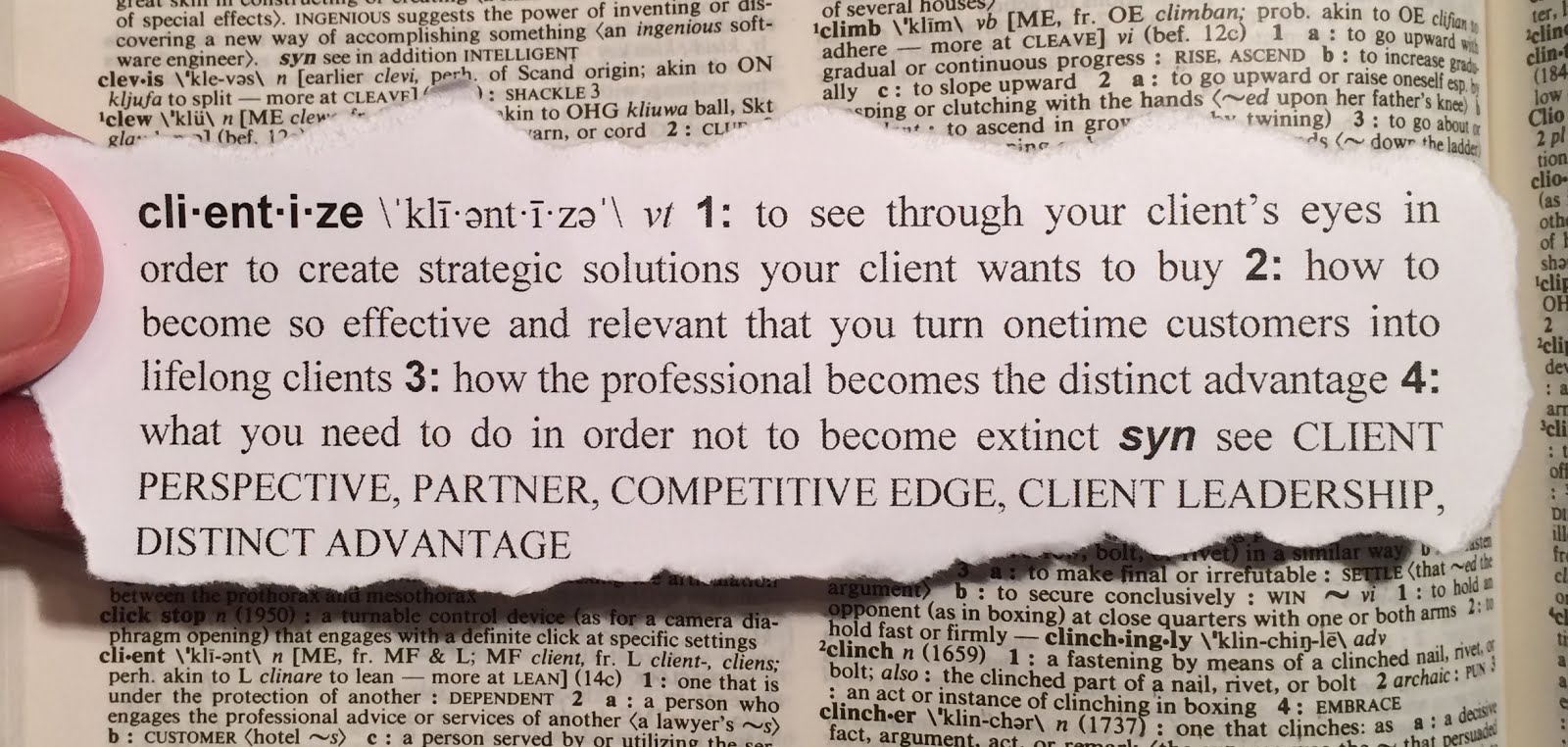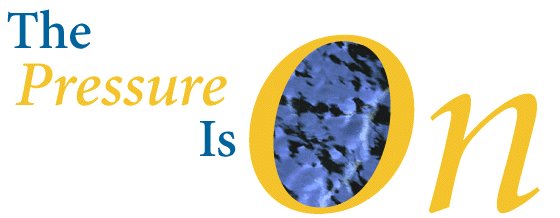This is a question that is asked and never answered very clearly, very articulately, or at any length. I will attempt to answer this question, a question that people ask me that I too sometimes cannot quite put my finger on because it requires more than a minute. While not exactly a recipe, I will provide lessons and ideas you can incorporate into your business and daily regimen with your clients and your staff. Here are some ideas accumulated and distilled for your reading.
- The best and clearest answer to this question is: By providing quality services. Quality, as most of us know, is in the eyes of the client. That is, the client defines quality. Quality services are those services deemed important by the client--each individual client. To be specific, this means each client account and each person within the client account. What do clients and individuals deem important? Usually tasks and projects they aren't qualified to perform or have some amount of risk assigned to them.
- Where do I find important tasks and projects? By looking for and identifying trends, issues and especially requirements that are required by a government regulation.
- This means accepting difficult assignments. Difficult assignments may be defined by tight timeframes, high risk tasks and projects, low-margin-for-error tasks and projects, bleeding edge assignments, and/or assignments that require measurable business results.
- Be responsible. This means take responsibility for accomplishing small projects and tasks outside your primary assignment. If the client asks could you look into this? Do so. If the client says can you fix this? Create a new statement of work. The two tasks are totally different. One is to inquire and shape an issue. The other is to address it. One takes little time and effort; the other takes more time and effort.
- Take on tasks and projects that other consultants steer away from--but the client needs performed. Yes, it may mean doing something you did 10 years ago and isn't bleeding edge, but it is important to the client now. There is a difference between being indispensable and a prima donna. These types of tasks mark the difference between the two.
- Provide competent, differentiated service. Do such things as preparing a memo--a short one--that details where you are in your project--a status update. Prepare a short memo regarding a problem you have come across that is outside the scope of you current project. Set up a meeting to walk the client through an issue or an important change in direction or provide a face-to-face update.
- Identify issues and problems not related to your project or main assignment.
- Never reveal other clients' problems or issues to your current clients.
- Keep confidences. If the client tells you something don't be the one to tell others unless the client (the person telling you the confidence) says outright that he or she wants you to carry the message to others. Even then, be careful as to not appear as a gossip or breaking a confidence. It's always best to not say something someone else told you that was said one-on-one or with some degree of confidence.
- Never disparage clients, people or competition to your client. Never complain about your staff, your colleagues, your management, or your firm.
- Stage decisions for your clients. When appropriate make sure certain tasks have a point in their timeline when a decision needs to be made. This means bringing the decision to the client at the appropriate time. "Staging a decision" does not mean you are making it appear that a decision needs to be made--that is a form of deceit and manipulation which you never want to be associated with.
- Avoid any sense of impropriety. Avoid this like spotting poison ivy in a garden. Steer clear, way clear. Remember Shakespeare here: "The fragrance of the rose lingers on the hand that casts it." Well smells linger on the hand that casts other things too.
- Arrange choices and alternatives in order of priority in terms of the clients priorities, the client's values, but always avoid making a decision for the client that the client should make.
- Never usurp the client's right to make a decision or to be wrong.
- Never correct the client when it obvious to others that he or she is wrong.
- Tell the client--but only when absolutely necessary--that they are about to drive off a cliff. And don't wait until they are on the edge of the cliff with two wheels already hanging over the edge. And after you tell the client they are about to drive off the cliff and they still prefer to keep on driving, get out of the car and stand back. You don't need to be a back seat driver at this point.
- Be available. When the client calls--no matter what time of day they call--call back immediately. Immediately means also when the client is going to chew your head off because of something someone in your firm has done.
- When things go wrong--correct them. Offer no excuses. Offer an apology yes--but never argue or try to talk your way out of it. Take responsibility means taking responsibility when and where you own the issue. This doesn't mean sometimes.
- Keep the client informed--always.
- Don't orchestrate problems or stage meetings to stay in front of the client. But do use opportunities that are important to inform and allow the client to hear and understand the issue.
- Be professional. Look professional, act professional, and speak like a professional. Speak in terms of getting things done.
- Learn how to say something concisely. Learn that a period can go right after the words yes and no. Clients--almost all that I have met--hate (yes, hate) when someone drones on and on.
- Learn how to speak in public. This means learning how to present something. If you can boil a complex topic down to three points and are able to state those three points clearly--you are on to something. Think green light, yellow light, red light. There are only three lights so we can remember what they mean. It's also the reason why there are three numbers to the area code and races (on your mark, get set, go). If you feel uncomfortable speaking join Toastmasters.
- Give presentations on cutting edge topics, technologies, trends, and/or regulations to keep the client informed.
- And last, don't be a jerk. No matter how smart you are, no one likes a jerk.









